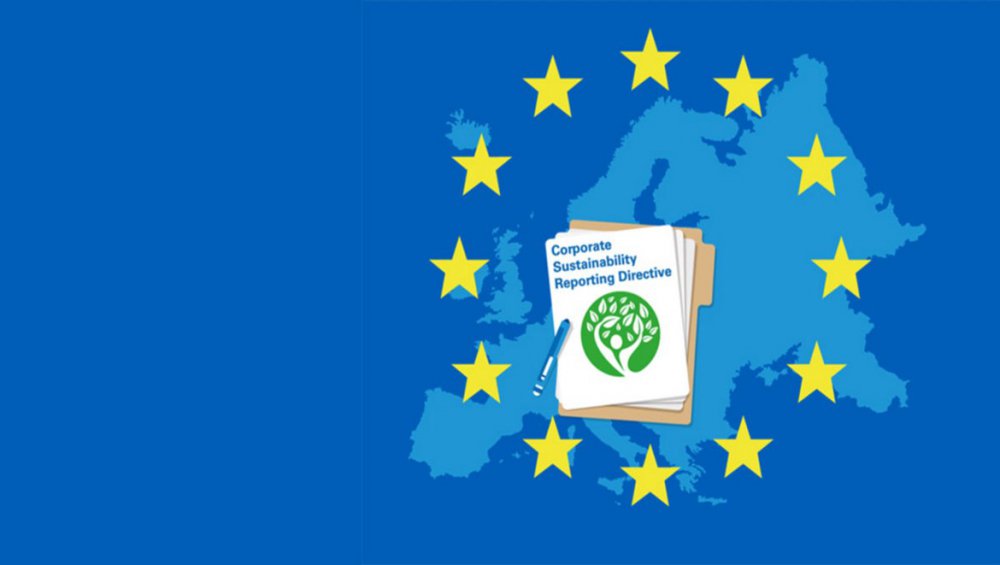
NEWS


Noëlle Lenoir: "New green standards from Brussels for thousands of companies"
Interview with Noëlle Lenoir on the European Commission's proposal for a directive of 25 April 2021 on corporate sustainability reporting.
Challenges - A new directive adopted by the European Commission on "corporate sustainability reporting" will affect 50,000 French companies. What is it about?
Noëlle Lenoir - Companies in Europe are required to be transparent in a way that is unparalleled anywhere else in the world, and this proposed directive[1] will further increase this. Beyond the publication of financial information as everywhere else, the "extra-financial reporting", which is the subject of this text, will take a prominent place for the 50,000 companies concerned in Europe. That is to say, companies with more than 250 employees or with a balance sheet of more than 20 million euros or a turnover of more than 40 million euros.
The annual management reports of many companies in Europe must already include a series of data on social, diversity, human rights, health, circular economy, environment, etc. With the future directive, information on payment practices, risk management, internal control systems, the fight against corruption and even the company's lobbying activities will be added. The data will cover the company's activities as well as its value chain. Companies will also have to show that their economic strategy is in line with the ecological transition and takes into account the "interests of stakeholders", shareholders and employees, but also customers, suppliers and NGOs.
What is the objective of Brussels?
The aim is to encourage "the allocation of financial capital to companies and activities that address social, health and environmental problems" and to make "companies more accountable for their impact on people and the environment, thereby building trust between them and society". As we can see, the European Commission is relying on a supposed lack of trust of European citizens in business, which according to surveys is not at all true. It will be interesting to observe the attitude of the French presidency of the EU on this issue.
The text is part of the Green Deal[2], and has the same objective as the regulation on the taxonomy that lists low-carbon activities. Why are we protesting against a very virtuous system?
The taxonomy effectively lists "virtuous" activities with regard to the ecological transition in order to direct private financing towards these activities, while the "corporate sustainability reporting" directive must allow investors to verify, thanks to the published data, that their activities are indeed worthy according to the taxonomy to benefit from their financing.
What are the consequences for French companies?
Companies deemed to be exposed to societal and environmental risks, mainly our national champions in the energy, transportation, advertising and distribution sectors, will find it less easy to obtain financing.
By the way, will nuclear power finally be penalized by Brussels?
If nuclear power were not classified in the taxonomy as a low-carbon activity giving access to public and private financing under the Green Deal, the French industry would be at a serious disadvantage compared to the German renewable energy industry, which the Green Deal will help significantly. The exclusion of nuclear power from the taxonomy would be all the more shocking because the European Atomic Energy Community treaty, known as Euratom, is a founding text adopted in 1957, like the Treaty of Rome, to promote research and the peaceful use of nuclear energy. However, this treaty has not been denounced!
What new standards will the directive impose?
Firstly, the categories of extra-financial information to be published are multiplied. Secondly, this information will now have to comply with standards defined by a private association, the Efrag. This "European Financial Reporting Advisory Group", based in Brussels, is charged by the directive with proposing technical standards that the European Commission will make mandatory through "delegated acts".
Can we talk about privatization of the European standards factory?
The member states and the European Parliament have in fact become accustomed to delegating their legislative power to the Commission in technical areas. The disadvantage is the opacity of the procedure for adopting the non-financial standards that will be imposed alongside the accounting standards. It is not the Commission that defines them, but working groups that include representatives of national administrations, economic operators and NGOs, which are far from always favorable to companies.
How will the reliability of the information published by companies be controlled?
The transparency obligations weighing on European companies entail significant burdens for them, including those of checking the reliability of the information published. In France, such information must be validated by "independent third-party bodies". The directive goes further by entrusting audit firms with the certification of non-financial information, as they already certify financial information.
In the event of challenges before the courts - and we can expect more and more of them - for misleading information, for example in case of greenwashing, companies will risk a lot. But so will the auditors, as evidenced by the fact that the French “Haut Conseil du Commissariat aux Comptes”, which regulates the audit profession, did not hesitate recently to sanction audit companies for not having detected anomalies at Alcatel or William Saurin.
What about Chinese or American companies?
In order not to undermine the level playing field in the single market, the directive provides that subsidiaries of foreign companies will be subject to the same transparency requirements as European companies. But this is already the case: all foreign subsidiaries registered in the EU have the nationality of the member state of registration. This provision is therefore a sham.
[1] https://ec.europa.eu/info/business-economy-euro/company-reporting-and-auditing/company-reporting/corporate-sustainability-reporting_en#review
[2] https://www.challenges.fr/green-economie/le-green-deal-europeen-doit-compenser-la-hausse-de-la-taxe-carbone-pour-les-menages_773644
Noëlle Lenoir Avocats
28 boulevard Raspail
75007 PARIS
+33 1 45 44 67 16
contact@noellelenoir-avocats.com
Noêlle Lenoir Avocats ©2020 All rights reserved
